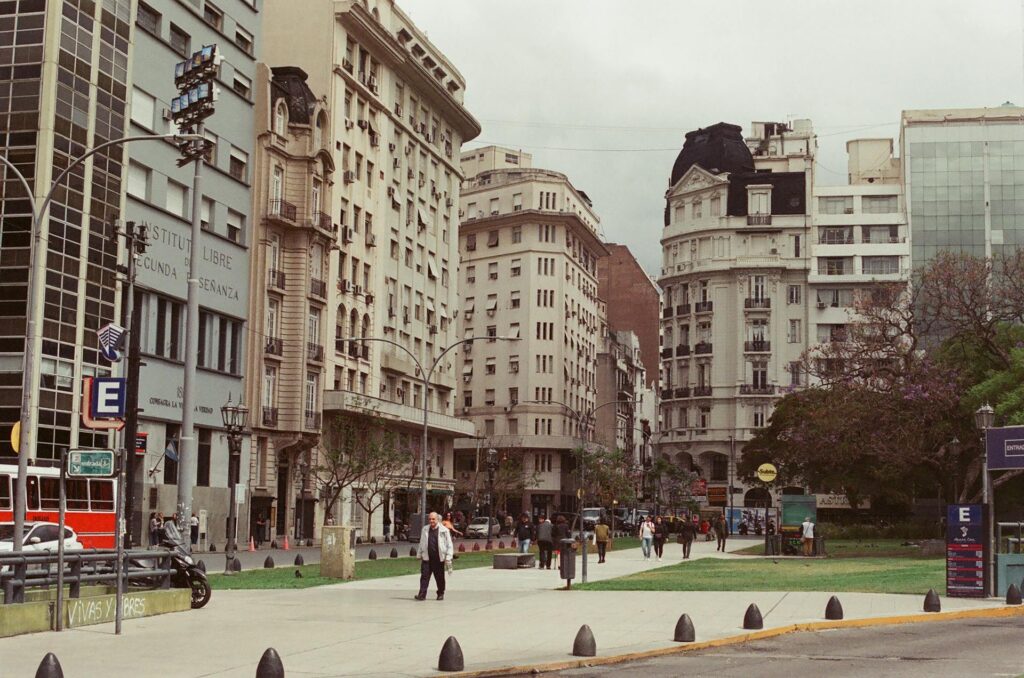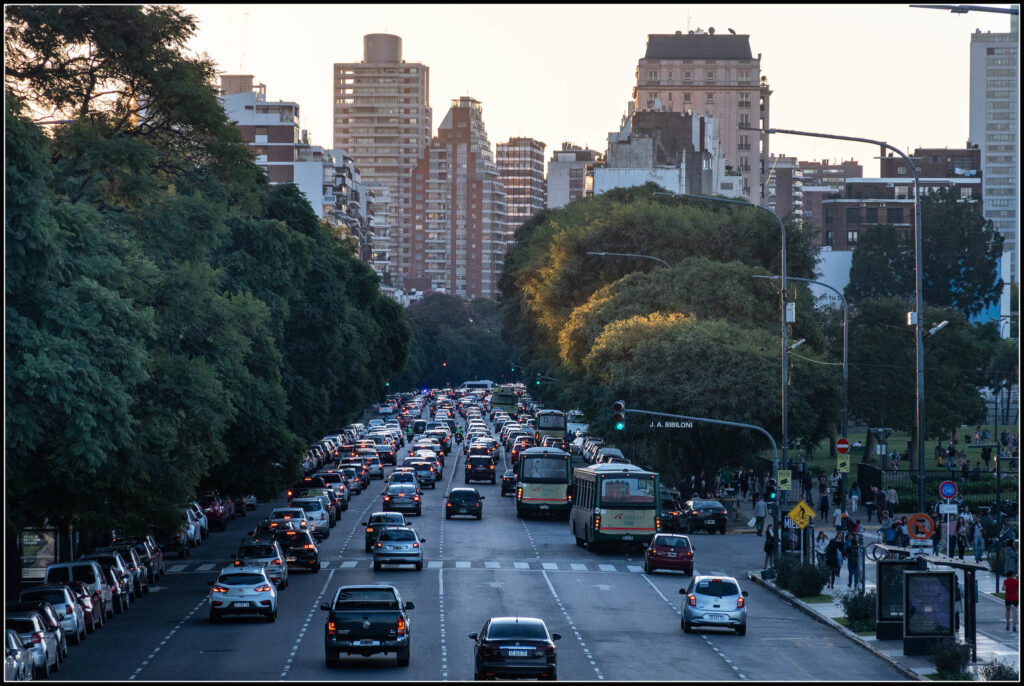Ready to tackle the digital challenges of living or traveling in Buenos Aires? ExpatPathways is here to guide you through the maze of internet options with our article, “Wi-Fi Internet in Buenos Aires: Options and Recommendations for Digital Nomads.”
From choosing the right SIM card to finding the fastest Wi-Fi hotspots, we provide all the essential tips to keep you connected in Argentina’s capital.
Whether you’re a globe-trotting freelancer, a curious expat, or a visitor looking to share your experiences real-time, discover the most reliable and cost-effective ways to stay online in Buenos Aires.
Basic information about telephony and Internet in Buenos Aires
National and international calls in Buenos Aires
Understanding the basics of telephony and Internet connectivity in Buenos Aires is crucial for digital nomads and travelers. The international country code for Argentina is +54, with the city code for Buenos Aires being 11.
To call Buenos Aires from abroad, you would dial 0054 11 followed by the local number. Mobile numbers require the addition of ‘9’ between the country and city codes, making it 0054 9 11.
Local numbers have eight digits, and no prefix is needed unless you’re calling a mobile phone, which requires the prefix 15.
For domestic long-distance calls within Argentina from Buenos Aires, dial 0, the regional code, and the phone number. International callers from Buenos Aires should start with 00 followed by the country code and the number.
Public Phones in Buenos Aires: A Relic of the Past
Though once common, public telephones in Buenos Aires have dwindled to just 8,100 units, largely located in hospitals, shopping centers, and train stations.
These devices are now more often used for tourist photos and have become collector’s items, with some being sold for as much as 60,000 Argentine pesos or rented out for 50,000 pesos per week.
The rise of mobile phone usage in the mid-2000s led to the decline of public phones, with fewer than 50 remaining in the city, including those in phone booths and kiosks that still offer the service.
The famous phone booths have virtually disappeared from public view, with the remaining few mostly found in transportation and shopping hubs. Since 2005, there has been an ongoing program by the city government and service providers to remove these units due to issues such as vandalism.

Mobile Internet Connectivity in Buenos Aires
In Buenos Aires, mobile Internet predominantly relies on 4G and 4G+ networks. Although the Argentine government has initiated projects to auction 5G bandwidth, widespread 5G coverage is not yet available.
In the central areas of Buenos Aires, 4G and 4G+ services are nearly ubiquitous among all major mobile operators.
However, as one moves away from the city center—whether going south, west, or north—the availability fluctuates between 4G and 3G, reflecting less consistent coverage in outlying areas.
Explore the Buenos Aires mobile connectivity map here
WiFi internet for digital nomads in Buenos Aires
Internet Connectivity Options in Buenos Aires
When it comes to staying connected in Buenos Aires, digital nomads and travelers have multiple options:
- Types of Connections: You can access a variety of internet connections, including cable broadband, ADSL (Asymmetric Digital Subscriber Line), fiber optic, wireless Internet, and in some rural areas, satellite internet services such as INSAT.
- Providers: National ISPs like Claro, Movistar, Personal, and Telecentro have a strong presence in Buenos Aires. Local and regional providers are also available, offering diverse services tailored to different needs.
- Speeds and Plans: Internet plans vary widely, catering to different user needs from basic browsing to high-demand activities like streaming and online gaming.
- Coverage: Internet coverage varies by location, with urban areas typically enjoying better access to high-speed options compared to more remote regions.
Wi-Fi Internet in Buenos Aires
Buenos Aires offers over 250 free Wi-Fi hotspots, including locations throughout the subway and Metrobus networks. The BA WiFi app helps users locate these hotspots on their smartphones and is available for download.
Many local bars, cafes, and restaurants also offer free Wi-Fi to customers. The city aims to provide free and open internet to democratize technology access and foster a connected, integrated urban environment.
Efforts are ongoing to expand and upgrade these services, including the installation of new access points and the enhancement of existing technologies.
What is BA WiFi?
BA WiFi is a citywide network offering free 24-hour internet access through over 1200 antennas located in high-traffic areas such as public buildings, parks, squares, and transport stations.
This network is equipped with navigation protection to safeguard user data and restricts content inappropriate for minors under 18.
- Technical Details: Equipment models range from Cisco Meraki MR33 to MR74, Aironet 1500, and others, with a range of 30 to 50 meters. Bandwidth per user is capped at 5 Mbps, with each session lasting 30 minutes, though users can renew their access indefinitely by re-accepting the terms and conditions.
- Security: BA WiFi employs IronPort technology, enhancing user experience by restricting sensitive content including violent images, child abuse content, hacking, illegal activities, and more.
Free Wi-Fi Considerations
While free Wi-Fi is convenient for casual internet use such as checking emails or looking up directions, it may not always be reliable for more critical or high-speed needs.
For those requiring a more stable and faster internet connection for work or other important activities, alternatives like eSIMs or SIM cards might be better.
Free Wi-Fi networks can suffer from interruptions and generally poor performance, making them less ideal for continuous professional use.

Leading Wi-Fi Internet Providers in Buenos Aires
- Personal: Offers Wi-Fi internet among other connectivity and telecommunications services.
- Movistar: Provides fiber Wi-Fi internet, among other services.
- Telecentro: Offers Wi-Fi internet and television services.
- Claro: Provides Wi-Fi internet and television services.
- Iplan liv: Specializes in fiber Wi-Fi internet, known for its promotional offers and expanding service range.
Phone Cards (SIM & eSIM) for Connectivity in Buenos Aires
Staying connected in Buenos Aires is vital for digital nomads, and there are several options available for securing mobile internet and call services.
Prepaid Phone Cards
Available at many tobacconists, newsagents (‘kioscos’), and call-shops/cyber cafes (‘locutorios’), which are ubiquitous throughout the city and provide telephone booths and internet access.
eSIM Technology
An increasingly popular option, eSIMs allow you to access mobile services worldwide without needing to swap physical SIM cards.
This virtual SIM is integrated into the mobile device and can be activated quickly and easily through a mobile app.
They tend to be more economical and simpler to activate compared to traditional SIM cards.
Before purchasing an eSIM, ensure your device is compatible with this technology. Modern mobile phones from brands like iPhone, Samsung, and Google usually support eSIM.
Local SIM Cards
If your device does not support eSIM technology, a local SIM card remains a viable option, especially if you plan to stay in Buenos Aires for an extended period and require substantial data.
Local telecom companies like Claro, Personal, and Movistar offer tourist-friendly SIM cards, available at cell phone shops across the city and at international airports. While the activation process for a local SIM can be more demanding than for an eSIM, this method may still be economically beneficial for those needing stable connectivity.
These can be purchased from mobile phone stores and many kiosks. Local SIM cards are a popular choice among travelers as they provide straightforward access to the internet and calling services.
However, purchasing a SIM card can be a complex and lengthy process, especially for first-timers in Argentina due to the requirement of providing a valid ID and possibly configuring network settings manually.
Additional Considerations for Mobile Connectivity
- Ensure the mobile networks in Buenos Aires are compatible with your phone.
- Check that your smartphone is not locked by your home country’s operator, which would prevent using a local SIM.
Roaming
For those who prefer sticking with their current mobile provider, roaming is a traditional yet costly option to access internet services in Buenos Aires.
This method relies on agreements between your home operator and local mobile companies in Buenos Aires, allowing you to use local networks for internet access, calls, and texting. However, roaming usually entails additional charges that can significantly increase your phone bill.
Advantages of Roaming in Buenos Aires
- Retain your local number, making international calls easier.
- Pay for services only at the end of the billing cycle.
Disadvantages of Roaming
- High costs that can accumulate quickly.
- Uncertainty about the total amount you will need to pay.
- Dependence on your home operator for connectivity.
- Pocket Wi-Fi as an Alternative in Buenos Aires
Pocket Wi-Fi in Buenos Aires
An alternative method for internet access in Buenos Aires is renting a pocket Wi-Fi device. Pocket Wi-Fi provides a portable internet connection via mobile networks, making it an ideal choice for travelers needing to share a single connection across multiple devices.
Although convenient for groups, the costs associated with renting pocket Wi-Fi, along with the additional data charges, can make it an expensive option. Furthermore, these devices require regular charging, adding another layer of maintenance during your travels.
Tips for Using and Maximizing Internet in Buenos Aires
Now that you know your connectivity options in Buenos Aires, here are some tips to help you enjoy a worry-free internet experience during your stay, without concern over costs or data limits:
Set a Data Usage Limit
It’s vital to know how much data you have and your usage rate. By setting a data limit, you can prevent excessive consumption by apps or features that you don’t necessarily need.
Turn Off Roaming
To avoid high charges for using the internet in Buenos Aires, make sure to disable roaming on your mobile device. This will allow you to use local internet networks and save on mobile phone bills.
Utilize Free Wi-Fi Points
Buenos Aires has many places offering free internet access, including libraries, squares, and shopping centers. Make the most of these free Wi-Fi spots to extend your data longevity and save on mobile expenses.
Use Data-Efficient Apps
Certain apps consume less data, such as WhatsApp, Telegram, and Facebook Lite. Opt for these instead of their full-featured counterparts to conserve data and maintain a stable, secure connection.
Consider Coworking Spaces
These venues are more common in Buenos Aires than you might think. They offer the chance to rent space in their offices, including Wi-Fi use, to conduct your activities. You can opt for monthly plans or book specific days of the week.
Bars and Cafes for Working
If you want to blend sightseeing in Buenos Aires with work commitments, consider heading to a bar or café. Fortunately, Buenos Aires boasts a coffee shop or bar approximately every 200 meters, allowing you to choose a location that suits your needs or constraints.
Most bars and cafes offer good quality Wi-Fi internet, and some even provide spaces specifically designed for working on your laptop.
By following these tips, you can ensure that your internet usage in Buenos Aires is both effective and economical, letting you stay connected and productive without breaking the bank.
Last considerations
As you plan your adventure or relocation to Buenos Aires, have you considered how crucial your internet access will be?
With ExpatPathways’ guide, “Wi-Fi Internet in Buenos Aires: Options and Recommendations for Digital Nomads,” you’re now equipped with comprehensive insights into the city’s diverse internet options.
From freely available Wi-Fi across numerous public spaces in the Autonomous City of Buenos Aires to more stable and dedicated services like local SIM and eSIM cards, including pocket Wi-Fi, your connectivity is assured.
How will you use these tools to maximize your productivity and enjoyment while exploring or settling in Buenos Aires?
(Featured Image Source: Juan Pablo Donadías/flickr.com)


